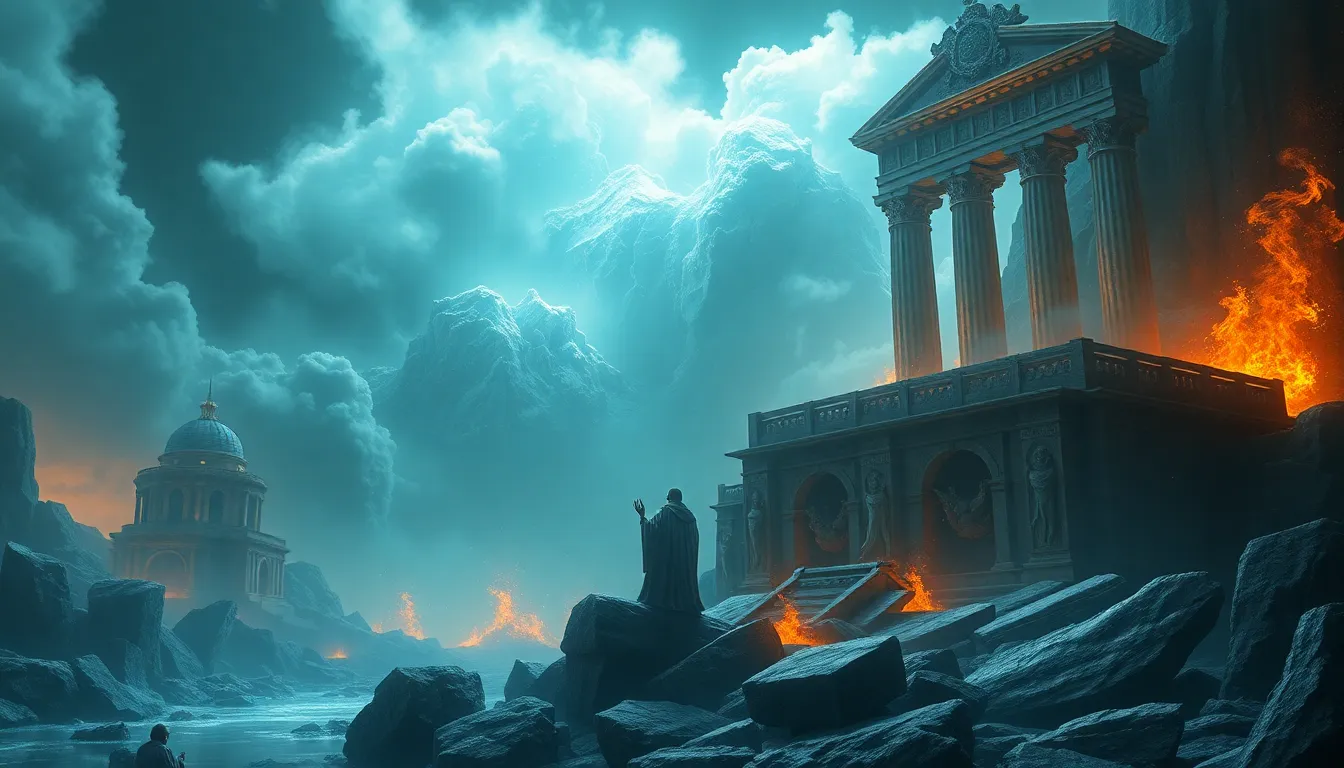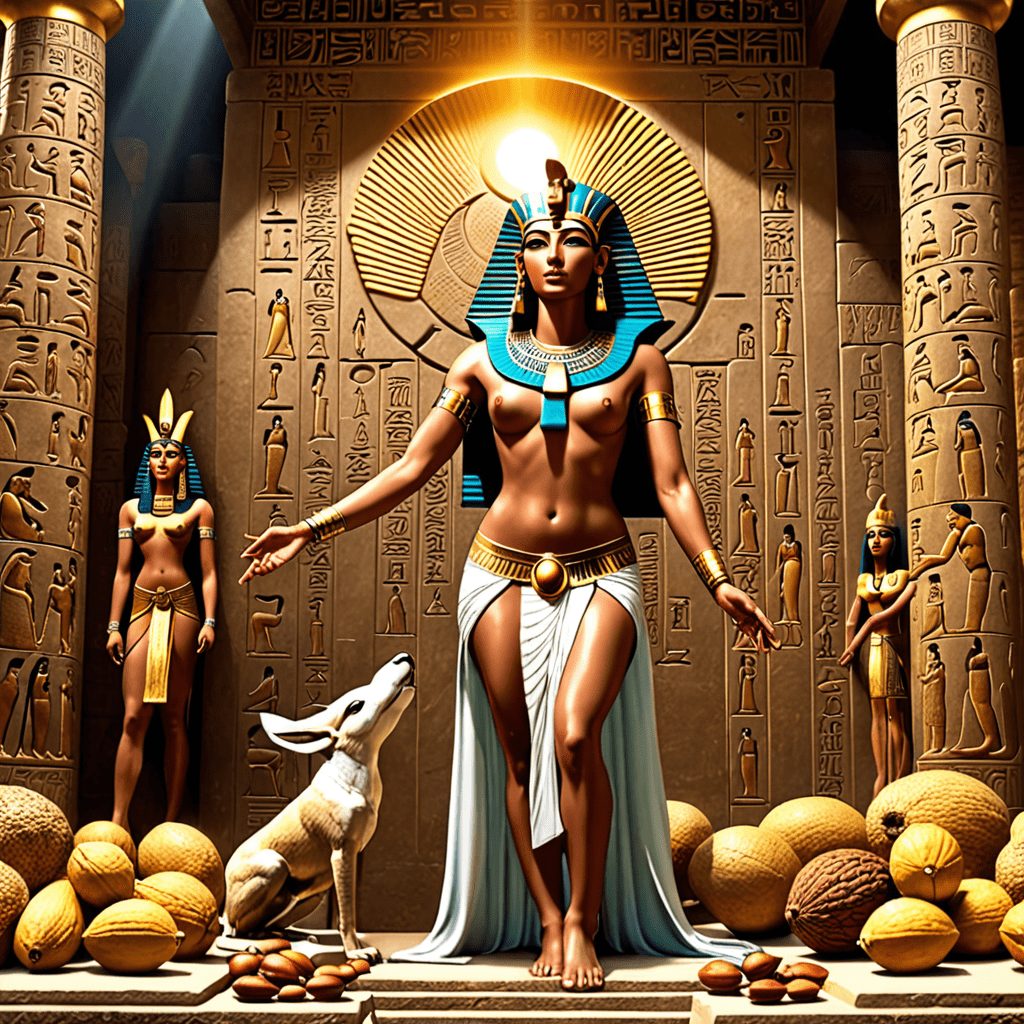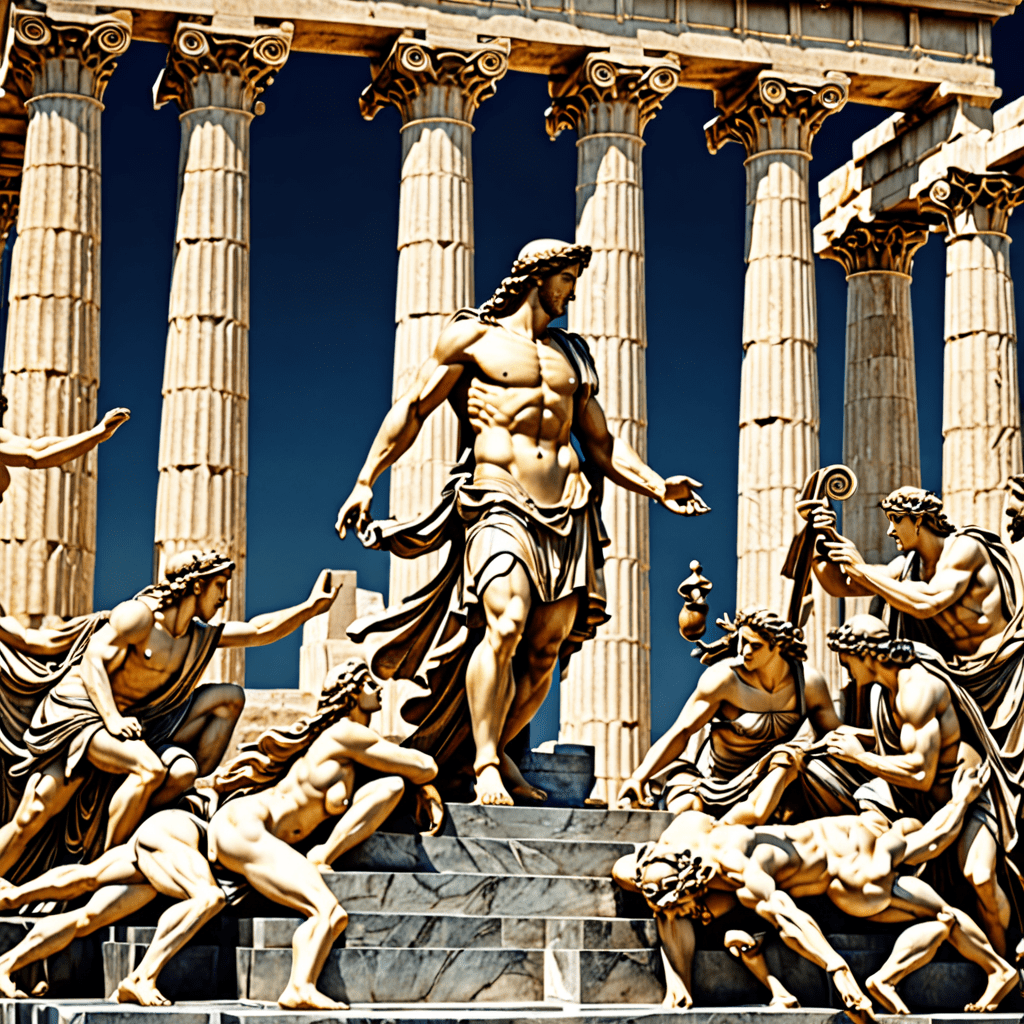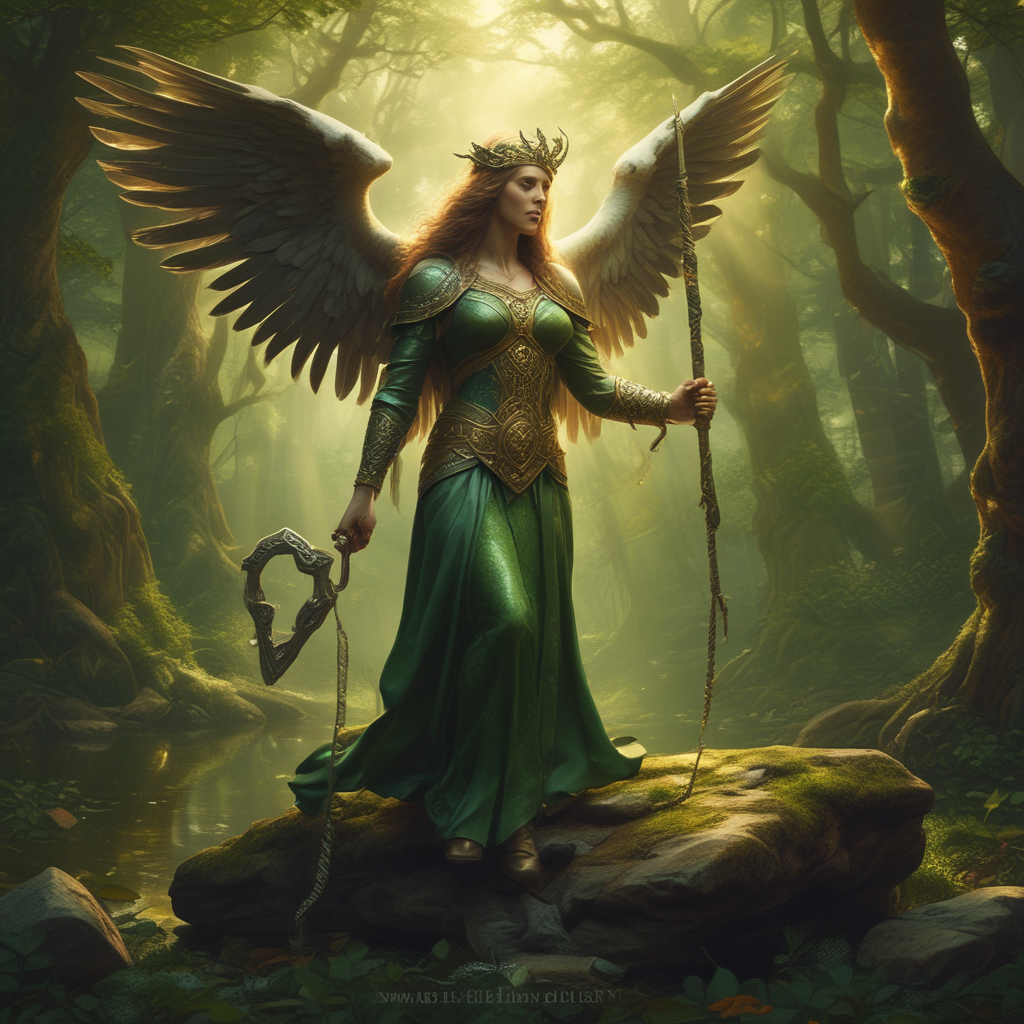The Ultimate Price: How Mortals Faced Divine Punishments
I. Introduction
Throughout history, the concept of divine punishment has permeated various cultures, serving as a powerful reminder of the consequences of mortal actions. From ancient myths to modern religious texts, narratives of deities exacting retribution have been used to illustrate moral lessons, instill fear, and reinforce societal norms. Understanding these divine repercussions is crucial for grasping how societies have developed their moral frameworks and set boundaries on human behavior.
This article will delve into the historical context of divine punishments, explore the concept of hubris and its consequences, examine case studies from various mythologies, and analyze the implications of these beliefs on modern society.
II. Historical Context of Divine Punishments
A. Ancient beliefs and mythologies
Many ancient cultures had rich mythologies that included stories of gods punishing mortals for their transgressions. These narratives often served as cautionary tales.
1. Greek and Roman pantheons
In Greek mythology, the gods were known for their capriciousness and harsh punishments. Mortals who defied or disrespected the gods faced severe consequences, as illustrated in the stories of Prometheus and Niobe. Similarly, the Roman pantheon inherited many of these themes, with their gods exhibiting similar traits of vengeance and justice.
2. Mesopotamian gods and their wrath
In Mesopotamian culture, the gods were believed to control the fates of mortals. The Epic of Gilgamesh, for example, showcases the interactions between humans and gods, often highlighting the consequences of hubris and disrespect toward divine beings.
B. Religious doctrines and texts
1. Judeo-Christian perspectives
The Judeo-Christian tradition emphasizes the notion of divine retribution, particularly in the Old Testament. God’s punishments, such as the Great Flood and the destruction of Sodom and Gomorrah, serve as powerful reminders of the consequences of sin and moral failure.
2. Hindu and Buddhist interpretations
In Hinduism, the concept of karma plays a significant role in divine punishment. Actions in this life determine one’s fate in future reincarnations. Buddhism, while focusing on the cycle of rebirth, highlights the importance of ethical conduct and the consequences of one’s actions.
III. The Concept of Hubris and Its Consequences
A. Definition of hubris in mythology
Hubris, defined as excessive pride or self-confidence, is a recurring theme in many mythologies. It often leads to a mortal’s downfall, as gods punish those who overstep their bounds.
B. Famous myths illustrating hubris
1. The story of Icarus
Icarus, who flew too close to the sun despite warnings from his father, Daedalus, is a classic example of hubris. His disregard for divine caution resulted in his tragic fall, symbolizing the dangers of overreaching.
2. The tale of Niobe
Niobe boasted about her children, challenging the goddess Leto. As punishment, her children were slain, and she was left to mourn eternally, illustrating the grave consequences of pride and disrespect toward the divine.
C. Lessons learned from hubris-related punishments
The stories of Icarus and Niobe teach valuable lessons about the importance of humility and the potential repercussions of defying divine authority. They serve as cautionary tales that emphasize the need for respect in the face of greater powers.
IV. Case Studies of Divine Punishments in Mythology
A. Greek mythology examples
1. Prometheus and the gift of fire
Prometheus, a titan who stole fire from the gods and gave it to humanity, faced severe punishment. Zeus condemned him to eternal torment, symbolizing the consequences of defying divine order.
2. Arachne’s transformation into a spider
Arachne, a talented weaver, boasted that her skills surpassed those of Athena. In response, Athena challenged her to a contest, and upon losing, Arachne was transformed into a spider, illustrating the dangers of hubris and disrespect toward the gods.
B. Norse mythology examples
1. Loki’s punishment post-Ragnarok
In Norse mythology, Loki’s misdeeds led to dire consequences. After the events of Ragnarok, he was bound with the entrails of his son, symbolizing the eternal punishment for his treachery.
2. The binding of Fenrir
Fenrir, the monstrous wolf, was bound by the gods as a precaution against his potential destruction. This act reflects the theme of divine punishment as a means of maintaining cosmic order.
C. Egyptian mythology examples
1. Osiris and the judgment of the dead
In Egyptian mythology, Osiris judged the souls of the deceased. Those who failed the judgment faced eternal punishment, emphasizing the importance of moral conduct in life.
2. The fate of Set
Set, the god of chaos, faced punishment for his actions against Osiris. His ultimate fate serves as a reminder of the consequences of betrayal and disorder.
V. Divine Punishments in Religious Texts
A. Biblical accounts of divine retribution
1. The story of Sodom and Gomorrah
The destruction of Sodom and Gomorrah is a powerful biblical narrative illustrating divine punishment for wickedness. The cities were obliterated due to their inhabitants’ sins, emphasizing the severe consequences faced by those who defy divine law.
2. Jonah and the city of Nineveh
In the story of Jonah, the prophet is sent to warn the city of Nineveh of impending divine punishment. The city’s repentance ultimately spares them, showcasing the potential for redemption despite previous transgressions.
B. Punishments in the Quran
1. The story of Pharaoh and Moses
The Quran recounts the tale of Pharaoh, who rejected Moses’ message. His subsequent punishment illustrates the consequences of arrogance and oppression, ultimately leading to his downfall.
2. The consequences faced by the people of Aad and Thamud
The people of Aad and Thamud faced divine punishments for their disbelief and arrogance. The narratives highlight the importance of faith and obedience to divine will.
VI. The Role of Fate and Free Will
A. The balance between divine will and human agency
Many cultures grapple with the interplay between fate and free will. While divine punishment often emphasizes a predetermined order, human agency also plays a significant role in shaping outcomes.
B. Philosophical perspectives on fate
Philosophers have debated the nature of fate, questioning whether humans have the power to alter their destinies or if they are bound by divine will. This discourse is prevalent in various religious and philosophical traditions.
C. How different cultures reconcile divine punishment with free will
Different cultures reconcile the concept of divine punishment with free will through various mechanisms, such as the notion of karma in Hinduism or the emphasis on repentance in Christianity. These frameworks provide a means for individuals to navigate their moral responsibilities while acknowledging divine oversight.
VII. Modern Interpretations of Divine Punishments
A. Literature and art reflecting divine retribution
Modern literature and art continue to explore themes of divine punishment. Works often reflect societal anxieties about justice, morality, and the consequences of human actions.
B. Psychological analysis of fear of divine punishment
Psychologists have studied the fear of divine punishment as a motivating factor in ethical behavior. This



